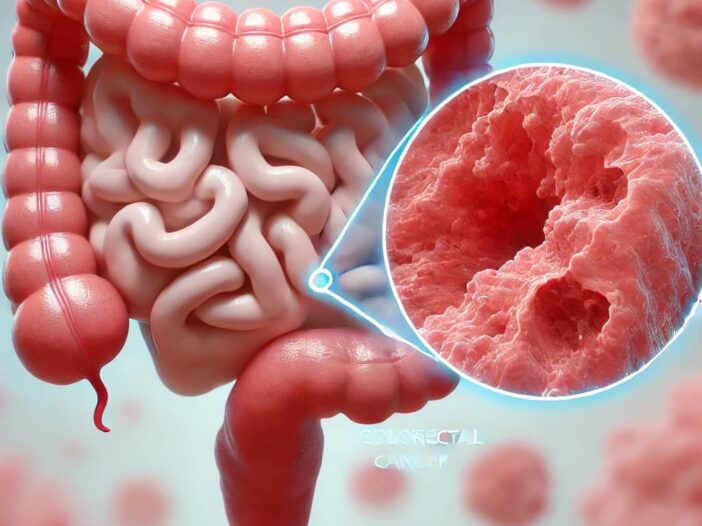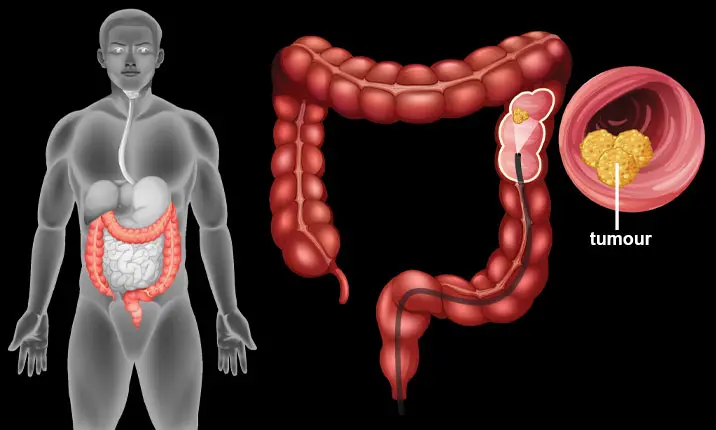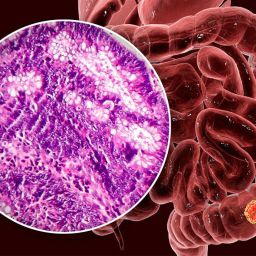
Psychological Effects of Colorectal Cancer
1. Emotional Distress Following Diagnosis
A cancer diagnosis is life-changing. For many patients, the immediate reaction is shock, disbelief, and fear. Colorectal cancer, in particular, carries stigmas and misconceptions related to bowel function and body image, exacerbating initial distress.
- Fear and Anxiety: Fear of mortality and the unknown is common. Patients may worry about the progression of the disease, the effectiveness of treatments, or the impact on their personal and professional lives.
- Stigma and Embarrassment: Colorectal cancer often involves sensitive topics like bowel habits and stomas, leading to feelings of shame or embarrassment, which can intensify emotional distress.
2. Depression
Depression is a prevalent psychological effect in colorectal cancer patients. Studies show that the emotional burden of living with cancer can lead to prolonged sadness, hopelessness, and withdrawal from social interactions. Physical fatigue from treatments can also contribute to feelings of depression.

- Symptoms of Depression:
- Persistent low mood
- Loss of interest in daily activities
- Feelings of worthlessness or guilt
- Sleep disturbances
- Difficulty concentrating or making decisions
3. Anxiety About Treatment and Outcomes
Colorectal cancer treatments, such as surgery, chemotherapy, and radiation, bring significant anxiety. Patients may worry about side effects, long-term outcomes, and the impact on their physical appearance and functionality.
- Body Image Concerns: Procedures like colostomies can cause significant body image issues, leading to feelings of self-consciousness and reduced self-esteem.
- Uncertainty About Prognosis: Many patients experience “scanxiety,” a term used to describe the anxiety associated with waiting for test results or follow-up scans.
4. Social Isolation
The physical and emotional toll of colorectal cancer can lead to withdrawal from social circles. Fatigue, embarrassment about discussing the disease, or the physical limitations imposed by treatment can contribute to feelings of isolation and loneliness.
5. Impact on Relationships
Colorectal cancer can strain relationships with family, friends, and romantic partners. The patient’s mood changes, combined with the caregiving burden on loved ones, can create tension.
Factors Contributing to Psychological Distress
Several factors influence the psychological impact of colorectal cancer:
- Disease Stage: Patients with advanced-stage colorectal cancer often experience greater distress due to a poorer prognosis and more intensive treatments.
- Age and Gender: Younger patients may struggle more with the interruption of life plans, while older patients might face challenges related to reduced independence.
- Pre-existing Mental Health Conditions: Those with a history of anxiety, depression, or other mental health issues may find their symptoms exacerbated by the cancer diagnosis.
- Cultural Stigma: In some cultures, discussing colorectal cancer may be taboo, leading to additional emotional suppression.
Strategies for Managing Psychological Effects
Effective management of the psychological effects of colorectal cancer involves a combination of professional support, self-care, and social strategies.

1. Psychological Support
- Counseling and Therapy: Professional counseling, such as cognitive-behavioral therapy (CBT), can help patients manage negative thoughts and develop coping strategies.
- Support Groups: Joining a colorectal cancer support group provides an opportunity to share experiences and reduce feelings of isolation.
- Psycho-Oncology Services: These specialized services integrate psychological care into oncology, offering targeted support for cancer-related mental health challenges.
2. Pharmacological Interventions
For patients experiencing severe anxiety or depression, medications such as antidepressants or anti-anxiety drugs may be prescribed. These should be used under the guidance of a healthcare professional.
3. Lifestyle Adjustments
- Regular Exercise: Physical activity can improve mood, reduce fatigue, and enhance overall well-being. Low-impact exercises like walking or yoga are especially beneficial for cancer patients.
- Healthy Diet: Eating a balanced diet rich in nutrients can boost energy levels and positively impact mental health.
- Adequate Sleep: Ensuring proper rest is crucial for emotional regulation and recovery from treatments.
4. Building a Support Network

- Family and Friends: Open communication with loved ones about emotions and needs can strengthen relationships and reduce feelings of loneliness.
- Professional Caregivers: Nurses, social workers, and psychologists specializing in oncology can provide valuable resources and guidance.
5. Mindfulness and Relaxation Techniques
Practices like meditation, deep breathing, and mindfulness-based stress reduction (MBSR) can help patients manage stress and stay present in the moment.
The Role of Healthcare Providers
Healthcare providers play a crucial role in addressing the psychological needs of colorectal cancer patients. Integrating mental health assessments into routine care can help identify issues early. Providers should also educate patients about available resources, such as psycho-oncology services and support groups.
Communication Tips for Providers
- Use empathetic and non-judgmental language when discussing sensitive topics like body image or bowel function.
- Encourage patients to express their fears and concerns openly.
- Provide clear and honest information about treatment options and their potential outcomes.
Family and Caregiver Support
The emotional impact of colorectal cancer extends beyond the patient to their caregivers and family members. Caregivers often experience stress, anxiety, and even burnout. Providing support for caregivers is essential to ensure they can effectively assist the patient while maintaining their own well-being.
Support Strategies for Caregivers
- Attend counseling sessions together with the patient.
- Join caregiver support groups to connect with others in similar situations.
- Learn stress management techniques to cope with the demands of caregiving.
Addressing Specific Challenges
- Body Image and Stoma Management Patients with stomas may benefit from counseling to address body image concerns and practical advice from stoma care nurses.
- End-of-Life Care For patients with advanced-stage colorectal cancer, addressing psychological needs becomes even more critical. Palliative care services can provide emotional support for both the patient and their family.
Colorectal cancer impacts not only the body but also the mind, creating a complex interplay of emotional and psychological challenges. By understanding the mental health effects of this disease and implementing effective management strategies, patients can achieve better overall well-being. Healthcare providers, families, and caregivers must work together to support patients through their journey, ensuring that their psychological needs are not overlooked. With the right resources and support systems in place, colorectal cancer patients can navigate their challenges with resilience and hope.


